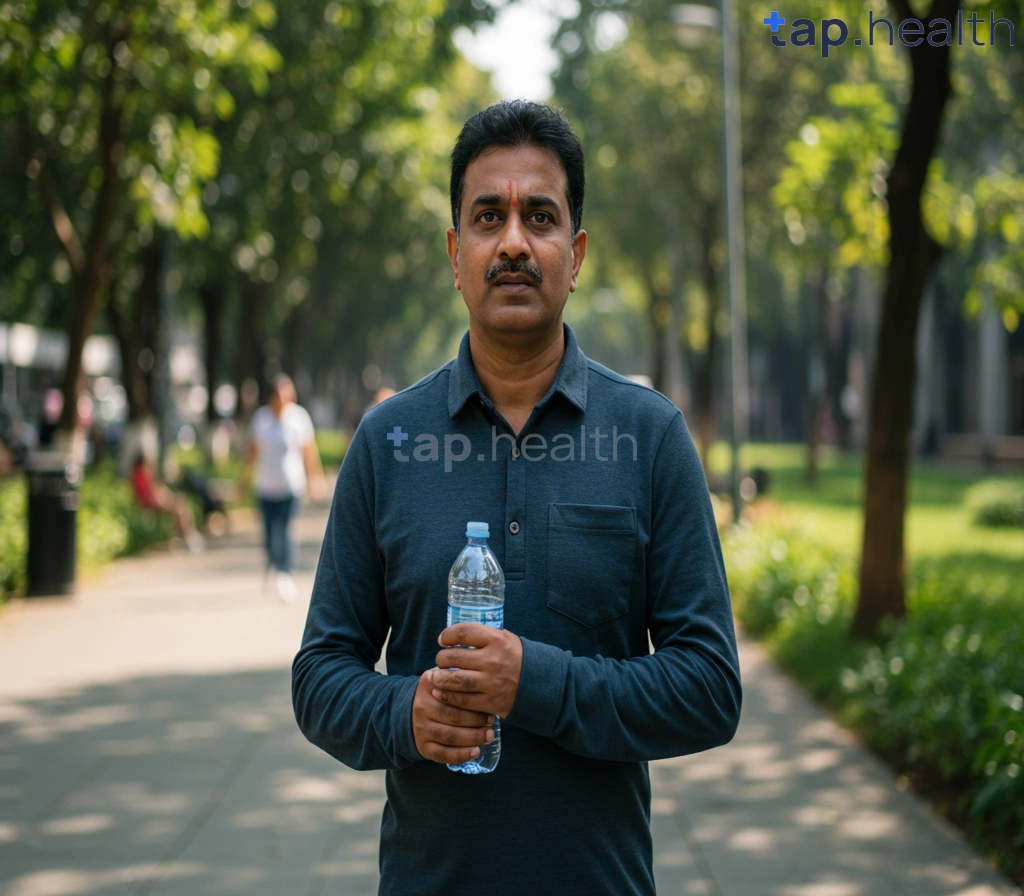Table of Contents
- Remediation Strategies for Improved Diabetes Management
- Boosting Diabetes Management: Trainee Success Trends
- Effective Training: Mastering Diabetes Management Techniques
- Diabetes Management Training: A Guide to Remediation and Success
- What are the Latest Trends in Diabetes Management Remediation?
- Frequently Asked Questions
- References
Are you a healthcare professional involved in diabetes education or patient care? Then you know how crucial effective diabetes management is for patient well-being. This blog post dives into the latest trends in Improving Diabetes Management: Trainee Remediation Trends and Success, exploring successful strategies and highlighting key areas for improvement in training programs. We’ll examine common challenges faced by trainees and showcase innovative approaches that are boosting patient outcomes. Get ready to learn practical tips and insights you can implement immediately to enhance your diabetes education and patient care.
Remediation Strategies for Improved Diabetes Management
Up to 80% of Type 2 diabetes cases can be prevented through lifestyle changes, a crucial statistic highlighting the power of proactive interventions, especially relevant in India and tropical countries where diabetes prevalence is rising. Effective remediation strategies focus on holistic lifestyle modifications tailored to individual needs and cultural contexts.
Dietary Adjustments
Dietary modifications are paramount. Traditional Indian diets, often rich in carbohydrates, require careful adjustment. Emphasis should be placed on incorporating more fiber-rich foods, reducing refined carbohydrates, and managing portion sizes. The increased availability of processed foods in urban areas needs to be addressed through educational campaigns promoting traditional, balanced meals. Promoting awareness about glycemic index and glycemic load of foods will be highly beneficial for the population in these regions.
Physical Activity & Exercise
Regular physical activity is essential. Incorporating culturally relevant forms of exercise, such as yoga or brisk walking, can improve insulin sensitivity and weight management. Accessibility to safe and convenient exercise spaces, particularly in densely populated urban areas, needs to be improved. Community-based programs can encourage participation and provide support. For more specific tips, check out our blog on 10 Proven Tips for Effective Diabetes Management.
Behavioral Modification & Support
Behavioral changes require ongoing support. This includes counseling, group therapy, and access to diabetes educators who understand the cultural nuances of the target population. Leveraging technology, such as mobile apps and telemedicine, can enhance adherence and provide personalized guidance. Regular check-ups and monitoring blood glucose levels are crucial to timely intervention. The success of any remediation strategy relies heavily on consistent patient engagement and appropriate support systems. Creating a supportive environment will enable individuals to make sustainable lifestyle changes and effectively manage their diabetes. Maintaining a strong immune system is also vital, and you can learn more about that in our article on Boosting Immunity While Managing Diabetes.
Boosting Diabetes Management: Trainee Success Trends
Diabetes management is a critical health concern, particularly in India and tropical countries. A significant portion of the global diabetic population, 61% are aged between 20-64 years, representing a large and active workforce. Effective training programs are crucial for improving their self-management skills and ultimately reducing the burden of this chronic condition. Understanding trainee success trends is key to tailoring effective interventions.
Identifying Key Success Factors
Successful diabetes management training programs in India and tropical climates often focus on practical, culturally relevant approaches. This includes addressing dietary habits specific to the region, incorporating traditional medicine where appropriate (under professional guidance), and recognizing the unique socioeconomic challenges that may impact adherence to treatment plans. For example, programs integrating mobile technology and community support networks have shown significant promise in improving outcomes for younger adults with diabetes, aligning with the fact that a large portion of those with diabetes are within the 20-64 age group, as cited in the International Diabetes Federation’s Diabetes Atlas. Emphasis on regular blood glucose monitoring, medication adherence, and lifestyle modifications proves particularly effective.
Improving Training Outcomes
To further boost success, training programs should incorporate regular assessments, personalized feedback, and opportunities for peer support. Addressing potential barriers, such as literacy levels and access to healthcare resources, is also critical. Moreover, focusing on long-term sustainability through ongoing education and support is vital for maintaining positive outcomes. Given the significant number of individuals aged 65+ years (39%) living with diabetes, programs should consider age-specific modifications and address the unique challenges faced by this population. For more insights into the challenges and solutions related to managing diabetes as you age, see our blog on Managing Diabetes as You Age: Challenges and Solutions.
Empowering Individuals with Diabetes
Investing in comprehensive, culturally sensitive diabetes management training programs is crucial for improving health outcomes in India and tropical countries. By incorporating these insights and trends, we can empower individuals to effectively manage their condition and lead healthier, more fulfilling lives. Contact our team today to learn more about our region-specific diabetes management training programs tailored to the unique needs of your population. The impact of proper diabetes education is significant; to learn more, read our blog: How Diabetes Education Enhances Health Outcomes – Tap Health.
Effective Training: Mastering Diabetes Management Techniques
Effective diabetes management is crucial, particularly in hot and humid climates prevalent across India and tropical countries. Maintaining optimal blood pressure is a key component, with targets generally below 140/90 mmHg, although some guidelines suggest aiming for below 130/80 mmHg. Achieving these goals requires comprehensive training programs for healthcare professionals and individuals with diabetes.
Improving Trainee Outcomes in Diabetes Education
Successful training programs must incorporate practical, culturally relevant strategies. For example, incorporating locally available foods and traditional cooking methods into dietary education is vital. Emphasis should be placed on individualized plans, considering factors like access to healthcare, socioeconomic status, and local dietary habits. Regular monitoring and feedback mechanisms are also essential for successful remediation and improved blood glucose control. Effective training should also address the specific challenges faced in managing diabetes within tropical climates, such as increased risk of dehydration and heatstroke. This is further emphasized in our guide on Personalized Diabetes Control: Your Key to Better Health.
Practical Strategies for Success
Trainee success hinges on engaging teaching methodologies. Interactive workshops, role-playing scenarios, and case studies reflecting real-life situations in Indian and tropical contexts can significantly enhance understanding and retention. Furthermore, providing access to ongoing support and resources, such as online communities or local support groups, is crucial for long-term success. This continuous support network helps trainees maintain momentum and address challenges they might face after formal training ends. For simple yet effective strategies, check out our blog on 10 Proven Tips to Effectively Manage Diabetes | Simple Guide.
Empowering Individuals with Diabetes in India and Tropical Countries
Ultimately, effective diabetes management training empowers individuals to take control of their health. By providing culturally sensitive, accessible, and ongoing support, we can significantly improve diabetes outcomes and enhance the quality of life for millions across India and tropical regions. Seek out accredited diabetes education programs in your area to ensure you receive the most up-to-date and effective training.
Diabetes Management Training: A Guide to Remediation and Success
The global burden of diabetes is staggering. According to the International Diabetes Federation, 536.6 million people aged 20-79 years lived with diabetes in 2021, a figure projected to rise to 783.7 million by 2045. This alarming increase, particularly prevalent in Indian and tropical countries, underscores the critical need for effective diabetes management training and robust remediation strategies.
Addressing Training Gaps in Diabetes Management
Many individuals in India and tropical regions face significant barriers to accessing quality diabetes education and ongoing support. These barriers often include limited healthcare resources, cultural factors influencing treatment adherence, and a lack of awareness about effective self-management techniques. Effective training programs must address these challenges directly, utilizing culturally sensitive approaches and accessible learning materials. This includes incorporating local languages and incorporating traditional healthcare practices where appropriate.
Successful Remediation Strategies: A Focus on Personalized Care
Remediation efforts should focus on personalized care plans, tailoring interventions to the individual’s specific needs, cultural background, and lifestyle. Regular follow-up appointments, including remote monitoring options, are crucial. Providing access to affordable medication and supplies is equally vital. Successful programs incorporate interactive educational sessions, group support, and access to certified diabetes educators. Focusing on practical skills, such as blood glucose monitoring and medication administration, empowers individuals to actively participate in their care. For those considering travel, check out our guide on Traveling with Diabetes: Essential Tips for a Safe & Healthy Journey to ensure continued management while away from home.
Empowering Communities Through Education
The rising prevalence of diabetes in India and tropical countries demands a proactive approach. Investing in comprehensive diabetes management training, coupled with effective remediation strategies, is not just a healthcare imperative; it’s a critical step towards empowering individuals and communities to manage this chronic condition and improve their quality of life. Contact your local healthcare provider or diabetes association to learn more about available resources and support programs in your area. While management is key, some may be interested in learning more about potential reversal methods. For further information, you may find our article on How to Reverse Diabetes Permanently helpful, though it’s important to consult with your doctor before making any significant changes to your treatment plan.
What are the Latest Trends in Diabetes Management Remediation?
The rising prevalence of diabetes in India, projected to increase from 77 million in 2019 to over 134 million by 2045 (source), necessitates innovative approaches to diabetes management remediation. This escalating number underscores the urgent need for effective training and improved healthcare access, particularly in tropical countries facing similar challenges.
Technological Advancements in Diabetes Care
Current trends emphasize technological advancements. These include the wider adoption of continuous glucose monitoring (CGM) systems, providing real-time data for better glycemic control. Furthermore, telemedicine platforms are expanding access to specialist care, especially beneficial in remote areas. These digital tools empower patients with personalized data and facilitate remote monitoring by healthcare professionals. Effective training programs must incorporate these technologies to maximize their impact. For more on how technology improves diabetes management, see our article on How Can New Technological Advances Improve Diabetes Lifestyle?
Focus on Lifestyle Modification and Prevention
Beyond technology, successful remediation hinges on comprehensive lifestyle interventions. This includes promoting healthy diets emphasizing locally sourced, fresh produce and traditional recipes, coupled with regular physical activity adapted to the tropical climate. Effective training programs should educate healthcare professionals on culturally sensitive strategies for promoting these lifestyle changes and integrating them into individual patient care plans. Community-based programs are key to fostering sustainable lifestyle changes.
Improved Healthcare Workforce Training
Finally, substantial investment in training healthcare professionals is vital. This includes equipping them with the skills to manage diabetes effectively, utilize new technologies, and deliver culturally appropriate care. Continuous professional development focusing on the latest advancements in diabetes management and culturally sensitive communication is crucial to improving outcomes and combating the rising tide of diabetes in India and other tropical regions. Stronger collaborations between healthcare providers, educators, and community leaders are essential for lasting impact. Managing other conditions, like cholesterol, is also crucial; learn more about How to Manage Cholesterol Levels with Diabetes?
Frequently Asked Questions on Improving Diabetes Management: Trainee Remediation Trends and Success
Q1. What is the focus of effective diabetes management training programs?
Effective programs focus on holistic lifestyle changes. This includes dietary adjustments (less refined carbs, more fiber), culturally relevant exercise (yoga, walking), and behavioral changes through counseling, technology, and community support.
Q2. How do these training programs address the unique challenges in tropical countries like India?:
Programs incorporate culturally sensitive approaches, address socioeconomic barriers, and utilize technology like mobile apps and telemedicine to reach and support individuals effectively.
Q3. What are the key factors that contribute to the success of diabetes management programs?
Personalized plans, regular monitoring, and ongoing support are crucial for long-term success and improved patient outcomes. Practical skills training and addressing challenges specific to tropical climates are also important.
Q4. How can technology improve diabetes management?
Technology plays a significant role through mobile apps that provide personalized plans, track progress, and offer support. Telemedicine expands access to care and expert advice.
Q5. What are the potential benefits of investing in comprehensive diabetes training and resources?
Investing in these programs empowers individuals to manage their diabetes effectively, leading to improved health outcomes and a better quality of life. It also contributes to reducing the overall burden of diabetes.
References
- A Practical Guide to Integrated Type 2 Diabetes Care: https://www.hse.ie/eng/services/list/2/primarycare/east-coast-diabetes-service/management-of-type-2-diabetes/diabetes-and-pregnancy/icgp-guide-to-integrated-type-2.pdf
- Artificial intelligence in diabetes management: Advancements, opportunities, and challenges: https://www.cell.com/cell-reports-medicine/pdf/S2666-3791(23)00380-4.pdf




